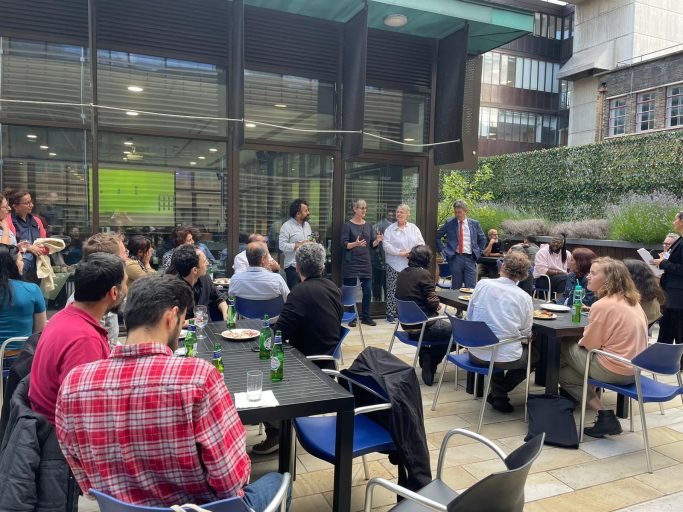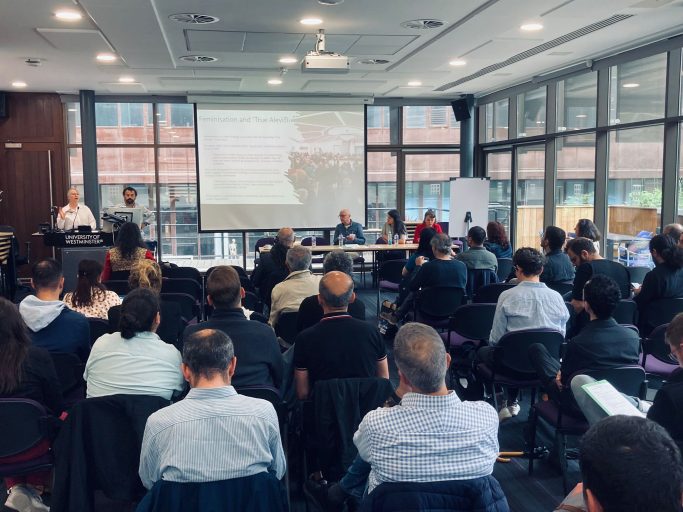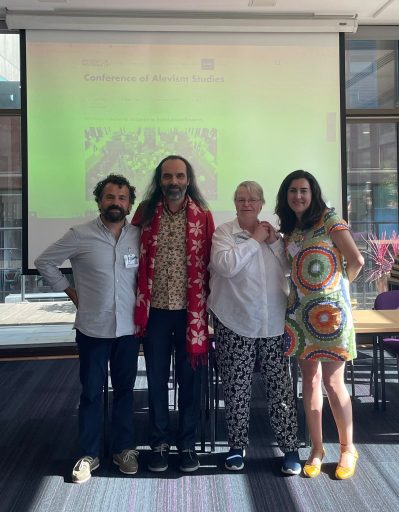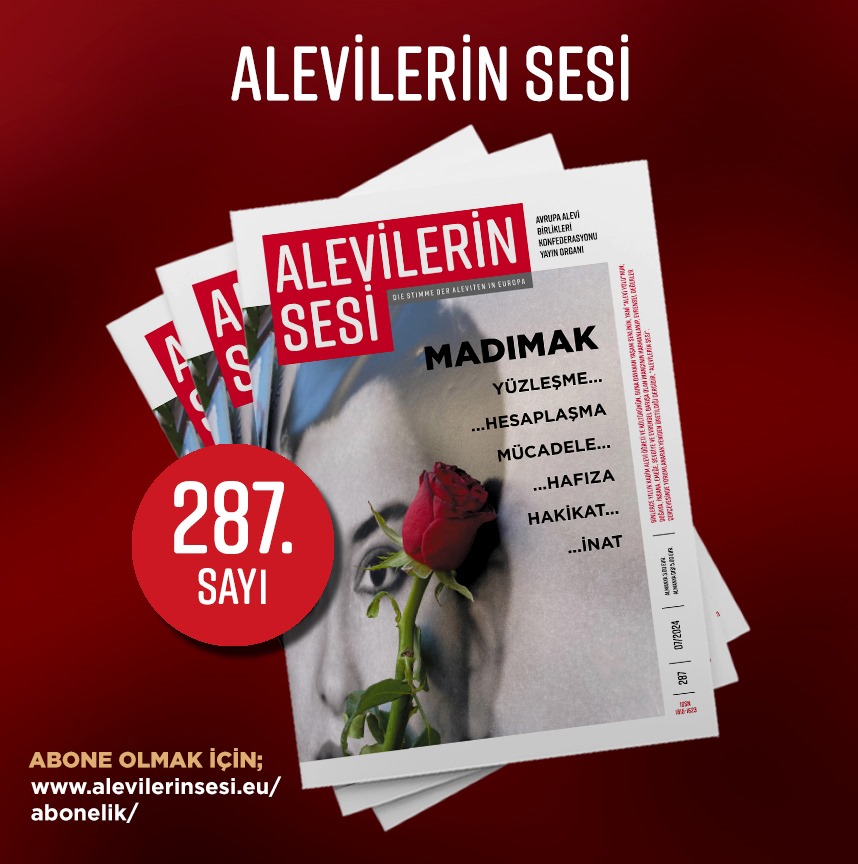Dr Umit Cetin and Dr Celia Jenkins
University of Westminster Sociologists, Doctors Umit Cetin and Celia Jenkins have worked in the field of Alevi studies for over twelve years, establishing it as a recognised academic field in the UK. The First Biennial International Conference for Alevism Studies organised with Dr Kumru Berfin Emre (University of the Arts London) was held at the University of Westminster from 3-5th July 2023. It represents the first large international gathering of Alevi scholars, with the intention to repeat it every two years. The University has always supported our Alevi research and fully funded this conference, which made it possible for more delegates to attend. The University of Westminster deserves recognition as an international hub for Alevism Studies.
The conference would not have been so well organised without the support of the expert international advisory board:
Associate Prof Dr Ayfer Karakaya-Stump, College of William & Mary,USA
Prof Dr Ayhan Yalçınkaya, Ankara University, Turkey
Prof Dr Bedriye Poyraz, Ankara University, Turkey
Dr Ceren Lord, University of Oxford, UK
Dr Deniz Coşan Eke, University of Vienna, Austria
Erdal Gezik, University of Amsterdam, Netherlands
Prof Dr Handan Aksünger-Kızıl, University of Vienna, Austria
Emeritus Prof Dr Martin van Bruinessen, Utrecht University, Netherlands
Prof. Dr Suavi Aydın, Hacettepe University, Turkey
Prof Dr Şükrü Aslan, Mimar Sinan University, Turkey

What is special about this conference is that it represents “a landmark in Alevism Studies”, and a very different experience in terms of the interdisciplinary expertise and quality of discussion. The main themes were reflected in the diverse panels on for example, Alevi spaces and localities, Alevi poetry, Alevi women and the politics of gender, Alevi memories and remembering, Alevi denial and resistance, law and politics. This conference evidenced the long tradition of Alevi scholarship and generated intense debates. Delegates reported that unlike other conferences where they had to explain about Alevis and Alevism, here they could engage in meaningful debate focusing in depth on their research and gaining constructive feedback from specialists in the field. This was especially beneficial for Masters and PhD students presenting their research. The workshop at the end of the conference identified delegates’ future plans for research, showcasing inspiring new research directions, common themes and possibilities for networking and collaboration between delegates.

Our own UK research has focused on the second-generation Alevi youth and their sense of a negative identity, manifested by the high rates of suicide among young men, who were marginalised, underachieving in school, involved with gangs and seeing no meaningful future. In collaboration with the British Alevi Federation, we organised workshops with the Alevi youth. They explained that nobody knew they were Alevi at school so they felt invisible, assumed to be Turkish and Muslim and struggled to explain Alevism. They tended to describe themselves as ‘sort of muslim’, which led to them being bullied by some of their muslim peers. Also, they learnt about other world religions in Religious Education (RE) classes so they wanted Alevism lessons taught in schools.

Together with the Federation and a local primary school, we developed Alevism lessons to fit the national curriculum and they were introduced in 2011 in that school and many others since. The success of the lessons meant that Alevi children felt they belonged in school, could express their identity and were treated with respect by other children. We invited children from the first school to join a panel at the conference to talk about their experience of being Alevi at school. The children, aged 9-11, said they felt proud to be Alevi at their school. One of the children asked the delegates about their experiences in school growing up in Turkey, and several delegates described having to hide their Alevi identity and being bullied for their beliefs by teachers and peers. We asked the children what advice they might offer someone facing this situation. One of them said that she was the only Alevi in her class and that she felt special because she is different. This reflects the impact of Alevism lessons in a multicultural society where children are learning about other religions and cultures. Our children on the panel exuded confidence in their Alevi identity and made it clear that Alevism is different but equal to other religions and beliefs.
Currently we are researching recent changes in the Alevi movement as it aims to build a distinctive and relevant Alevi identity in the UK. Also, we continue to work with Alevi youth about what Alevi identity means to them as many young people feel disengaged from religion and the Alevi movement.
Dr Umit Cetin is a senior lecturer in Sociology at the University of Westminster, School of Social Sciences.
Email: U.Cetin1@westminster.ac.uk
Dr Celia Jenkinsis principal lecturer in Sociology at the University of Westminster, School of Social Sciences

